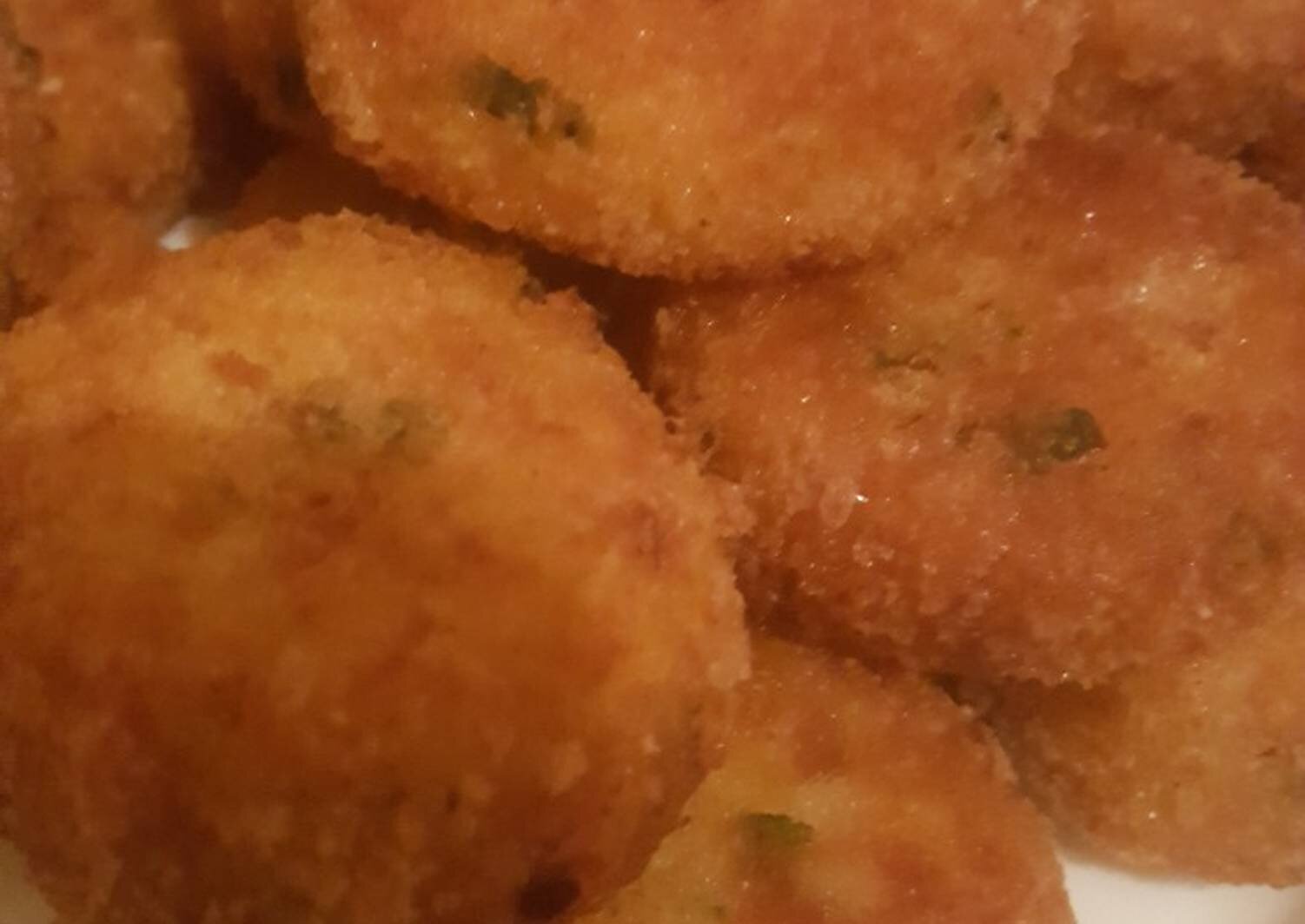That Translator Can Cook: Maaqouda
Delicious potato fritters seasoned with parsley, chile pepper, and a special spice blend; and served with eggs and breadcrumbs
This is a recipe I can make with my nieces: simple and it doesn’t matter if the food comes out ugly or misshapen. I would not add chile pepper because not only am I weak to spicy food, but so are my nieces.
I couldn’t find much information about maaqouda’s origins, but one question did arise from it: why do we all like frying potatoes? It’s doesn’t matter where you go, you can always find in a society’s cuisine at least one food that is deep fried. Science explains what happens when we fry food and why we like it so much.
Oil is usually heated twice as hot as boiling water, and when food is plunged into this hot oil, it starts to bubble. It is actually the moisture on the outside of the food that is boiled; this dehydration occurs on the outside and creates a crust, which is why we tend to use batter when deep frying food. Water molecules escape the food, allowing the oil to enter the food. In sum, the frying process results in a food that is crunchy on the outside and melt-in-your-mouth on the inside.
One tip for deep frying: “The fact that the food is bubbling actively means that it's got lots of moisture left, we need to keep cooking it and by the time we're finished, there should be little or no bubbling left. That means that the crust has been dried out completely it's nice and crunchy and there's no more cooking left to do.”
Why do we enjoy fried food?
Here are a few reasons why we love fried foods:
Smell: “Fats help you enjoy the taste of food because they’re able to dissolve and concentrate flavor and odor chemicals.”
Texture: “Fatty foods have a special mouth feel, a special texture….When chocolate melts in your mouth, it creates a smooth, full, coating sensation that most people agree is pleasant.”
Flavor: “Fats also help distribute salts and other seasonings throughout foods – such as salad dressings – so that they make more contact with your tongue and give a deeper flavor.”
Evolution: “The close tie between fat, flavor, fullness, and happiness might be an evolutionary adaptation. Generations of hungry people that had to work very hard to find their food created this response of happiness in us when we eat fat: the cave man inside us is finally satiated.”
Here’s another cool related fact: according to a study in the Journal of Lipid Research, we have a protein that is sensitive to fat, and those of us that have more of this protein on their tongue are more sensitive to fat and less likely to become obese.
Here is how to make these delicious and addicting potato fritters (recipe and pictures belong to Awladi sir Iptisamati):
Ingredients
5 potatoes, boiled
2 tablespoons of parsley, minced
1 egg
Salt
Seasoning:
Red pepper
Chile pepper
Cumin
Saffron
Dried breadcrumbs
Small clove of garlic
For Garnish:
2 eggs
Breadcrumbs
Instructions
Soak the potatoes in a pot while they’re hot before letting them cool; it helps you when you add the seasoning, eggs, garlic, breadcrumbs, and salt. Next, form balls with the resulting mixture and put them in the refrigerator so that they stick together and don’t open up when they're fried.
After the maaqouda are in the refrigerator for fifteen minutes, take them out and start frying them. Heat the oil well, then fry each ball gradually, toasting them on both sides. Then, place a paper towel on a plate to soak up the oil and start taking the maaqouda out. Bon appetit!
Translators’ Discussion
I wasn’t too sure about the first sentence of the instructions, how would you translate this sentence:
في إناء نمرس البطاطا وهي ساخنة قبل أن تبرد لكي تساعدنا و نضيف التوابل والبيض والثوم والخبز المطحون والملح
What are the fried foods you can’t live without? I don’t think I could live without fried chicken, falafel, fried cauliflower, or sweet potato/French fries.
What are the fried foods you would never try or never eat again? I would never eat fried insects; I hate bugs.





